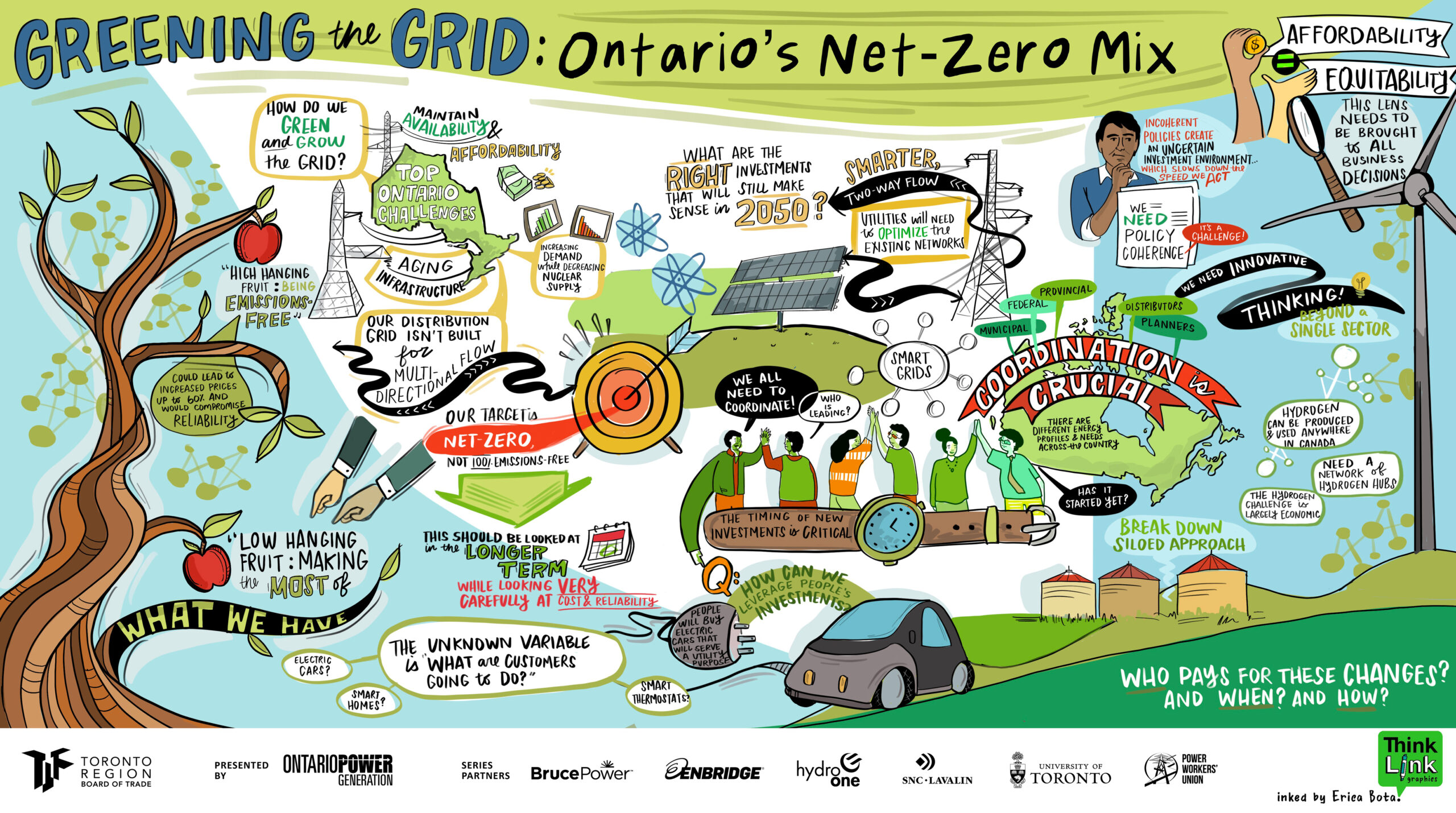University research can inform sector-specific actions to reach ambitious net-zero goal

The Roundtable was held as part of the Toronto Region Board of Trade’s Power Breakfast series on Canada’s and Ontario’s energy future. The discussion on avenues for Greening the Grid is captured above. (Illustration courtesy Toronto Region Board of Trade)
Industry, governments and university researchers have distinct roles to play in advancing Canada’s clean-tech economy, a forum on reaching the country’s net-zero targets heard recently.
“Roadmap to 2050 Net Zero: Building Stronger University-Industry Partnerships” was a roundtable discussion hosted by the Toronto Region Board of Trade and led by David Sinton, Engineering Professor and lead for the Climate Positive Energy Initiative.
The Initiative is one of the U of T’s Institutional Strategic Initiatives (ISIs), an inter-disciplinary approach to addressing the scale of global challenges such as inequality, climate change and infectious diseases.
The Climate Positive Energy ISI brings together over 100 researchers across eight faculties and 29 divisions to tackle the technological, political and societal factors that pose barriers to reaching net zero. Dr. Sinton was joined by approximately 20 leaders and project and engineering experts from industry, business and government, including from Arcelor Mittal, Royal Bank of Canada, Scotiabank, Suncor and Stelco, as well as representatives from small-and-medium sized companies.
Participants in the roundtable drew on their experience in government advocacy or developing and adapting cleantech solutions.
The urgency of climate change demands that companies and universities present shared solutions to decision-makers and translate technical information into policy recommendations, the participants agreed.
While the conversation was held under Chatham House rules to facilitate open discussion, several areas were highlighted:
1 – To drive innovation, develop mechanisms to de-risk commercialization. Clean-tech startups face multiple “valleys of death” before they reach a stable or growing market position. Commercialization training for entrepreneurs and intrapreneurs including IP, as well as public sector procurement, can support adoption of new technologies.
2 – Scaling successful cleantech innovations is as important as developing new products. Industry leaders underlined the potential of hydrogen power and carbon capture and storage technology, for example. Large companies want to identify technology that leverages these solutions and deploy and scale solutions across their product lines. Large industries may be more likely to be “fast followers” rather than “first adopters.”
3 – Academic-industry-government timelines need to be coordinated. Discovery science and its longer timelines is critical to meeting the scale of transformation required to reach emissions reductions targets. At the same time, industry needs market-ready products.
4 – Regulatory differences across jurisdictions and industries, as well as talent shortages in some energy sectors do not have to pose a barrier to national emissions reductions. Instead, sector-specific solutions can be developed, some of which may scale nationally.
5 – Recognize that a transformative mindset is required. Consumer demand for affordable energy informs the scope of innovation in the cleantech sector, some participants said. Providing consumers with information and incentives that can shift their preferences, from housing to transportation, is necessary to stimulate demand for renewable energy and clean-tech innovation.
